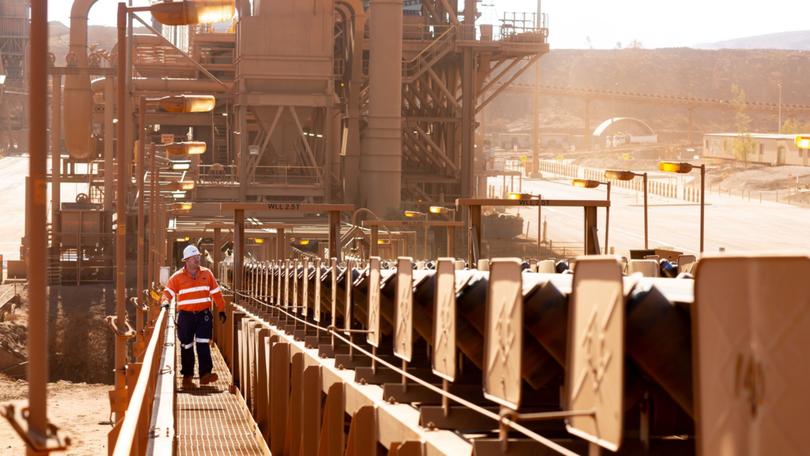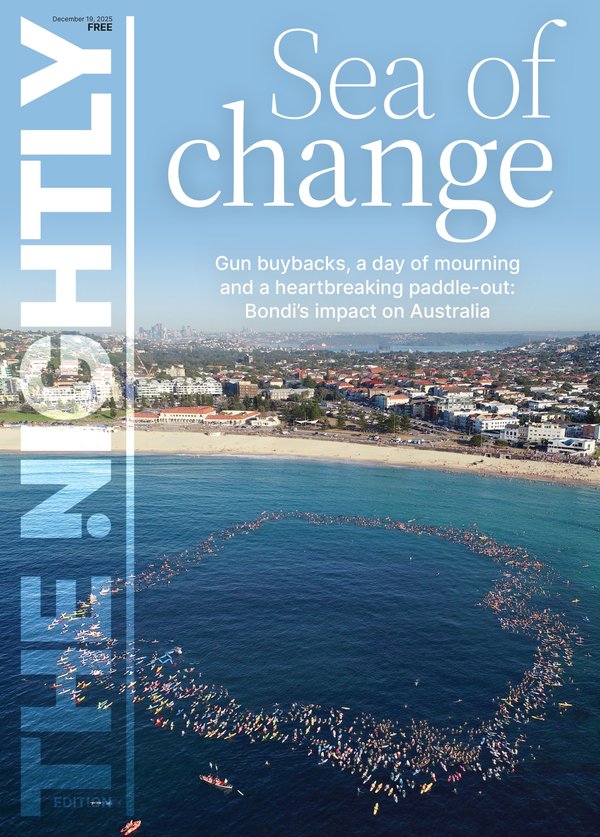Union wants BHP to hand FIFO workers a $10k bonus annually for staying at the company, plus bigger pay rises

The main union group trying to muscle in on BHP’s Pilbara iron ore operations is demanding thousands of workers be gifted a $10,000 “retention bonus” each year, on top of guaranteed pay rises, amid a weakening iron ore price environment.
A snippet of the wish-list items sought by the Australian Workers Union was posted to social media on Wednesday under the banner of the Western Mine Workers Alliance (WMWA). The WMWA is an alliance between the AWU and the Mining Energy Union. The MEU is not a party to the BHP negotiations.
The AWU is seeking a collective bargaining agreement guaranteeing annual pay increases of either a flat 5 per cent or WA’s cost price index percentage plus an extra per cent, whichever is greater.
Sign up to The Nightly's newsletters.
Get the first look at the digital newspaper, curated daily stories and breaking headlines delivered to your inbox.
By continuing you agree to our Terms and Privacy Policy.Changes by Federal Labor to industrial relations laws earlier this year have enabled the unions to gain a toehold into BHP’s South Flank and Mining Area C operations after decades of the unions effectively being frozen out from the Pilbara in the wake of the chaos and severe financial disruption they caused in the 1980s.
BHP declined to comment on Wednesday, but the company’s chief Mike Henry last month said the union action could snuff out plans to boost its WA iron ore output from 287 million tonnes a year to 330mtpa.
The gap between the two production numbers at current iron ore prices equates to about $5.5 billion in revenue.
The AWU is also seeking more flexible roster options at the BHP sites, including employees having the ability to work two weeks on and two weeks off, instead of the current regime of two weeks on and one week off.
Changing from a 2:1 to 2:2 roster means an employee’s pay would effectively go down 30 per cent but they receive eight weeks of additional annual leave. Miners prefer the 2:1 roster because it reduces their costs to fly workers on-site.
AWU WA State Secretary Brad Gandy told The Nightly in July that BHP was willing to trial more flexible rosters.
“Rosters have been an issue for many members at Area C for some time, and (we) welcome BHP’s decision to try and address one of our members’ bargaining claims before formal negotiations even starts,” Mr Gandy said at the time.
Mining Area C alone sustains 1100 direct jobs, the AWU says.
The Nightly understands that separately to AWU’s bargaining agreement push the Electric Trades Union and Australian Metalworkers Union are gunning for their own deals with BHP.
The AWU represents production workers like truck drivers and crushing plant operators, the ETU looks after electricians and linespeople, and the AWMU has boilermakers, mechanics, plant maintenance workers and lab technicians in its remit.
The union battle in the Pilbara comes as the Australian Bureau of Statistics released data on Wednesday, revealing that Australia’s construction sector lost almost 9000 working days in the June quarter to industrial action.
There was a surge broadly across the national economy, with 120,000 working days lost in the financial year to industrial disputes — up 80 per cent on last year — according to the ABS data.
The iron ore spot price is currently at $US90 per tonne, falling from above $US140/t at the start of the year as China’s residential property market withers.
